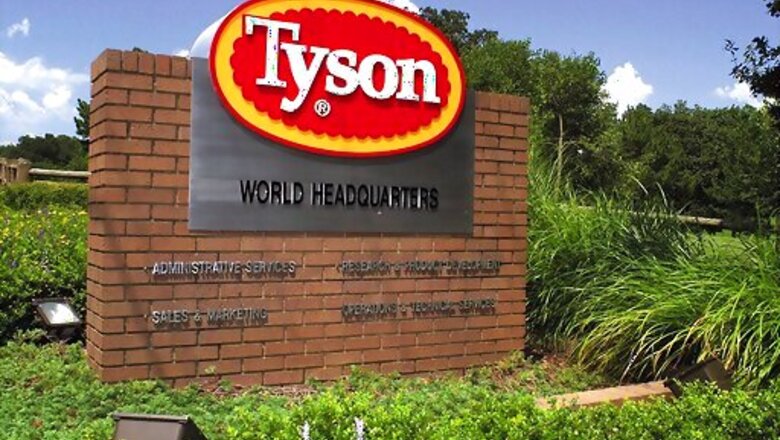
views
Tyson Foods says its raising wages to combat absenteeism and worker turnover at its plants as U.S. demand for chicken soars.
The Springdale, Arkansas-based company, which processes 20% of U.S. beef, chicken and pork, said Monday that absentee rates are around 50% higher than they were before the pandemic.
Government stimulus payments and enhanced unemployment benefits have made it harder to keep some workers, the company said. Health concerns and child-care issues have also been a factor.
It takes about six days right now to get five days worth of work done, said Donnie King, Tysons chief operating officer, during a conference call Monday with investors.
To combat the virus, Tyson began vaccinating workers in February through clinics at more than 100 sites. The company said Monday it has vaccinated more than 42,000 employees, or about one-third of its workforce. Tyson said its also offering vaccines to team members families when possible.
Tyson said its raising wages and implementing more flexible scheduling in order to keep its plants staffed. Executives did not elaborate on the percentage pay hikes workers were being given and a company spokesman was unable to provide further details.
Theres not a magic bullet here. Were looking at all kinds of things, trying to generate worker-driven solutions, King said.
U.S. meatpacking workers were among those hard hit by the pandemic. Last year, the families of three Tyson workers in Iowa who died from COVID-19 sued the company, saying it knowingly put employees at risk in the early days of the outbreak.
The staffing issues hurt production just as restaurants are reopening and demand for chicken is soaring. KFC, McDonalds and Wendys all introduced crispy chicken sandwiches in January and February. Smashburger followed with a hot chicken sandwich last month. Tyson said annual servings per capita of chicken sandwiches at U.S. restaurants are up 14%.
Tyson said chicken production was also hurt by February storms that knocked out power to some of its hatcheries. As a result, Tyson spent $60 million more in its fiscal second quarter buying meat from outside suppliers for processing.
Tyson’s chicken sales volumes fell 3% in its second quarter, but prices rose 8% due to demand. Beef and pork sales volumes were also down, but Tyson commanded higher sales prices. Tysons fiscal second quarter ended April 3.
Tysons overall sales rose nearly 4% to $11.3 billion in the second quarter. That was ahead of Wall Streets forecasts, according to analysts polled by FactSet.
Tyson’s net income rose 26.5% to $476 million for the quarter. Its adjusted earnings of $1.34 per share also beat analysts’ estimates.
Tyson’s shares are up more than 22% so far this year. They slipped less than 1% in after-hours trading following the release of the earnings report.
Disclaimer: This post has been auto-published from an agency feed without any modifications to the text and has not been reviewed by an editor
Read all the Latest News, Breaking News and Coronavirus News here. Follow us on Facebook, Twitter and Telegram.

















Comments
0 comment